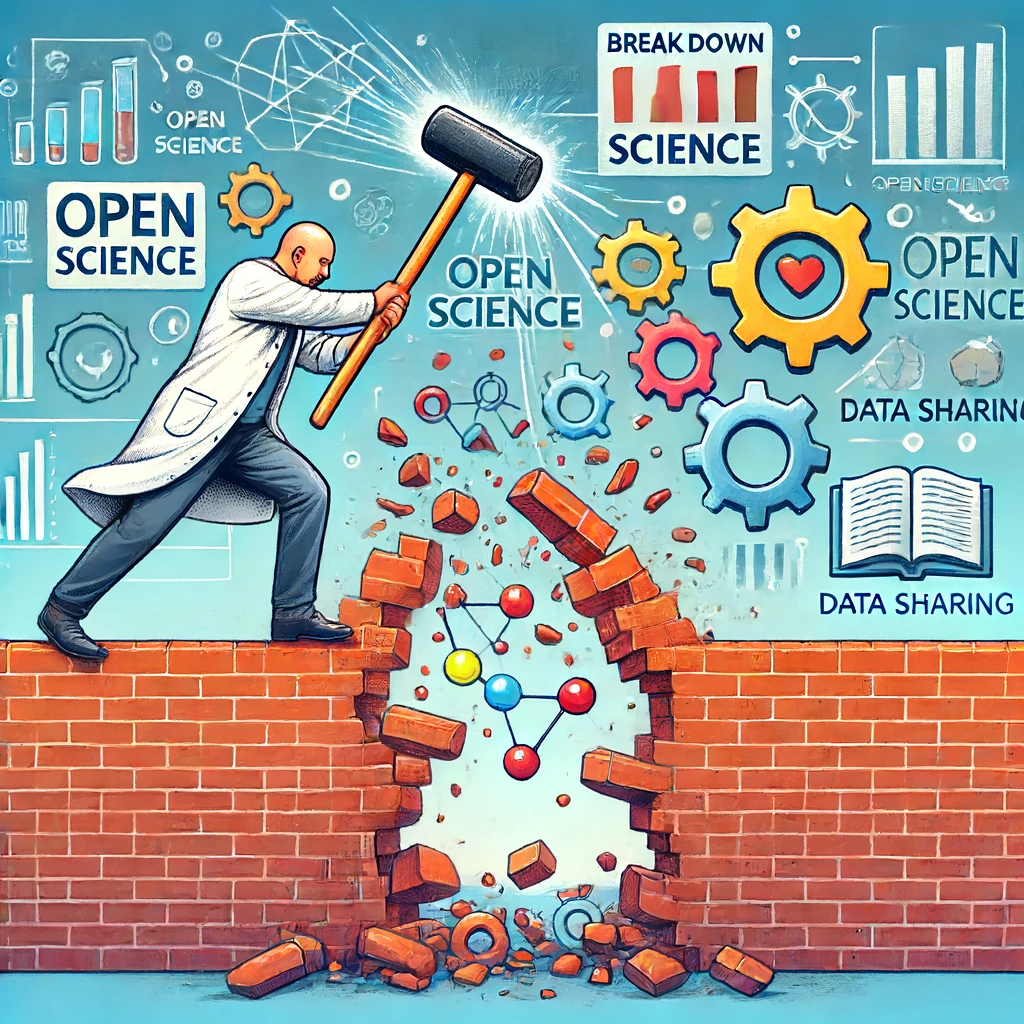Blog Post

Breaking Down Barriers: Embracing Open Science for a Brighter Future
Article posted at: 2024-02-12 12:41:39
Introduction
Imagine a world where scientific discoveries are shared openly, accessible to everyone, and collaborative efforts drive rapid progress. This is the vision of open science, grounded in principles of transparency, accessibility, and collaboration. Open science has the potential to revolutionize research, but its widespread adoption faces significant hurdles. Historical practices, cultural biases, and practical challenges contribute to the resistance against open science. This blog post explores these deeply ingrained obstacles and offers solutions to pave the way for a more transparent, collaborative, and equitable scientific ecosystem. Embracing open science can unlock the full potential of research, leading to faster advancements and a more inclusive dissemination of knowledge, ultimately benefiting society as a whole.
The Historical Grip on Scientific Knowledge
Scientific knowledge has been closely guarded for centuries, often treated as intellectual currency by researchers and institutions. The entrenched "publish-or-perish" culture, where career advancement and funding are tied to publications in prestigious journals, has reinforced a closed approach to research. Concerns about data misuse and the risk of premature disclosure have further discouraged open sharing. These historical norms, though often unspoken, continue to influence modern research practices and hinder the adoption of open science. Recognizing and addressing these roots is crucial for moving forward.
Cultural Barriers to Transparency
Cultural narratives within academia also play a significant role in maintaining the status quo. Scientific success has traditionally been associated with individual achievements and groundbreaking discoveries, often overshadowing the collaborative nature of research. This culture of competition and secrecy incentivizes researchers to hold onto their findings, hindering collective progress. The "winner-takes-all" mentality prevalent in many scientific disciplines creates significant obstacles to embracing open and collaborative practices. Shifting these cultural norms requires a reevaluation of what constitutes success in the scientific community.
Practical Challenges in Implementing Open Science
Beyond historical and cultural factors, practical considerations pose significant challenges to the widespread adoption of open science. Effective data management, version control, and long-term storage require technical expertise and resources that many researchers may lack. Navigating complex copyright and licensing issues can be daunting, particularly for those without a legal background. Furthermore, the absence of readily available infrastructure and training opportunities leaves many researchers feeling inadequately prepared to engage in open practices. Addressing these practical hurdles is essential to making open science more accessible and feasible for all researchers.
Strategies for Overcoming Barriers
Despite these challenges, the call for open science is growing louder. Overcoming the inertia against open science requires a multifaceted approach that includes actions at the individual, institutional, and funding levels.
Empowering Individual Researchers
As individual researchers, you have the power to drive change by embracing collaboration and recognizing the value of shared knowledge. Here’s how:
- Rethink Authorship Models: Celebrate collaborative efforts and shift perspectives on what constitutes scientific success.
- Build Skills: Utilize available resources and training to become proficient in data management, open access publishing, and collaborative tools.
- Advocate for Change: Encourage your colleagues and institutions to adopt open practices, participate in open science discussions, and advocate for policy changes within your department.
Institutional Support and Mandates
Institutions play a crucial role in facilitating the transition to open science. Key steps include:
- Mandate Openness: Establish clear policies that require data sharing, encourage open access publishing, and reward open practices.
- Invest in Infrastructure: Provide tools, resources, and support teams to assist researchers with data management, publication, and training.
- Cultivate a Culture of Openness: Celebrate collaborative research and showcase the benefits of open science to shift cultural norms. Recognize and reward researchers who champion open practices.
Funding Agency Initiatives
Funding agencies are pivotal in driving open science adoption. They can:
- Integrate Openness into Funding Criteria: Make data sharing plans and open access publication mandatory elements of grant proposals.
- Allocate Specific Funding: Support projects that promote and develop open science tools and infrastructure.
- Advocate for Systemic Change: Promote open science policies and incentives at national and international levels. Encourage changes in research assessment practices that value open and collaborative research.
Building Bridges Towards Openness
Transitioning to a truly open science ecosystem will not be without challenges. However, by understanding the historical, cultural, and practical barriers, we can collectively dismantle the walls of closed science. Addressing practical concerns and implementing solutions at the individual, institutional, and funding levels can accelerate the shift towards a more open, collaborative, and equitable scientific ecosystem. This collective effort can unlock the true potential of research, leading to faster progress, wider knowledge dissemination, and ultimately, a better future for all.
Conclusion
Open science promises a revolution in research, driving faster advancements, broader access to knowledge, and a more equitable scientific landscape. By addressing the deeply ingrained barriers and embracing open practices, we can pave the way for a more transparent and collaborative future. Researchers, institutions, and funding agencies all have a role to play in this transformation. Together, we can create a scientific ecosystem where knowledge is freely accessible and shared, benefiting society as a whole.
← Return